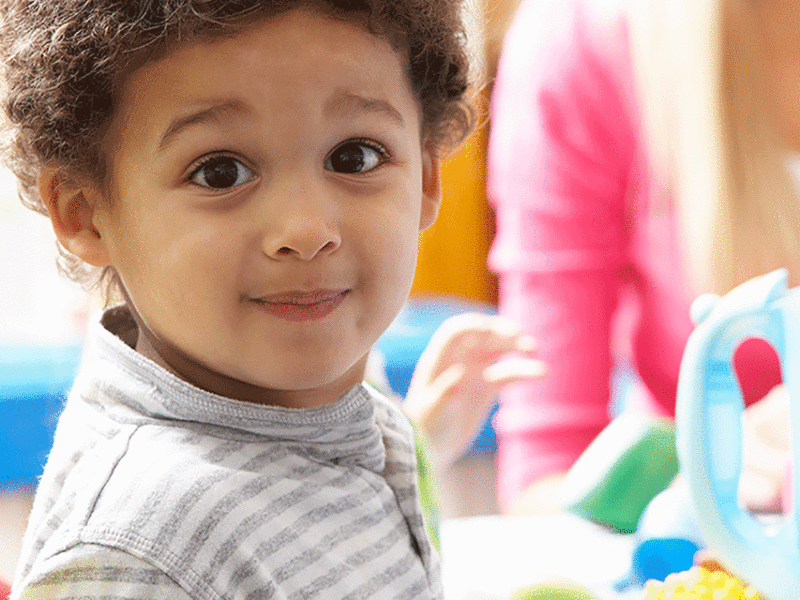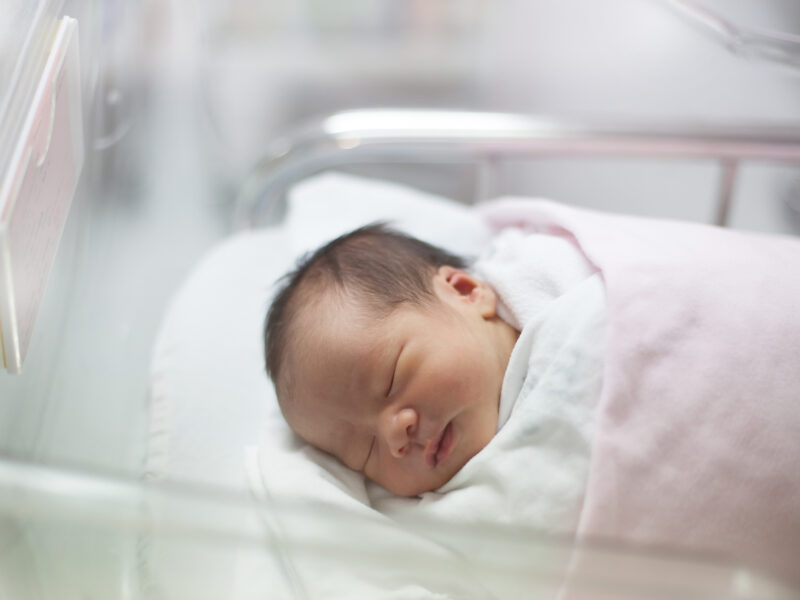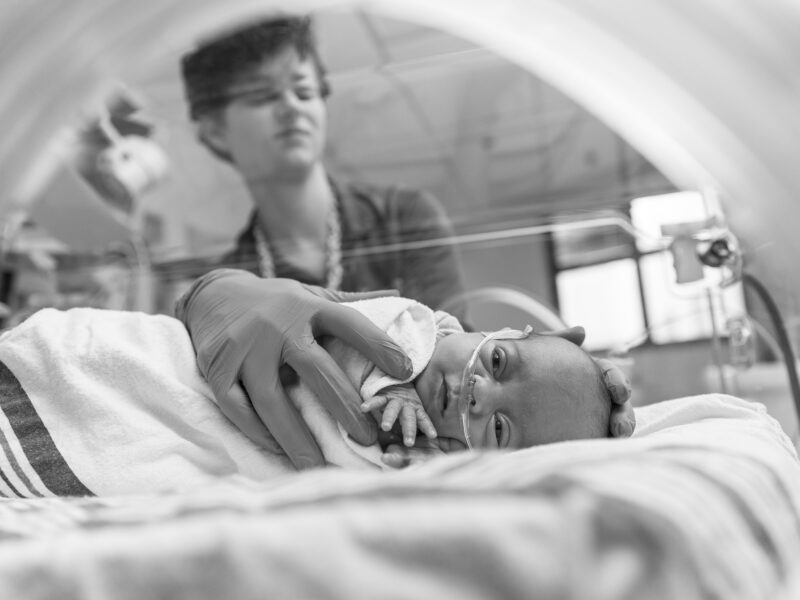On the Road to Eliminating RSV
On the Road to Eliminating RSV https://pediatricsnationwide.org/wp-content/themes/corpus/images/empty/thumbnail.jpg 150 150 Abbie Miller Abbie Miller https://pediatricsnationwide.org/wp-content/uploads/2023/05/051023BT016-Abbie-Crop.jpg- October 30, 2017
- Abbie Miller
With the recent publication of two papers, researchers shed light on factors that influence disease severity and immune response to respiratory syncytial virus infection in infants and young children.
“RSV is a very common infection in infants and young children – almost everyone will be infected by age 2. In the United States, 2-3 percent of all infants infected with RSV will be hospitalized,” says Octavio Ramilo, MD, division chief of Infectious Diseases and principal investigator in the Center for Vaccines and Immunity in The Research Institute at Nationwide Children’s Hospital.
In fact, RSV is the most common cause of bronchiolitis and pneumonia in children younger than 1 year of age in the United States, making it the most frequent reason for hospitalization in that age group. “When these babies get sick, they need oxygen and IV fluids. Around the world, hospitalization is often not an option,” says Dr. Ramilo. “Worldwide, RSV is the second leading cause of death in the first year of life after malaria.”
Dr. Ramilo is one of a team of investigators who are leading a major research effort directed toward two goals. First, to understand how the immune system responds to RSV, so that, second, they can develop a safe and effective vaccine against RSV.
The researchers – Dr. Ramilo, Mark Peeples, PhD, and Asuncion Mejias, MD, PhD – along with their teams and collaborators recently published two papers that break new ground in achieving those goals. Both studies were published in The Journal of Infectious Diseases.
The first study investigated antibody levels in infants during acute RSV infection. The question was: Do maternal antibodies help to protect infants from more severe disease? The assumption is that they do, but other factors such as airway size at such a young age are likely to be important, too, making this question difficult to answer. The answer is important because if serum antibody levels are protective, attempts to boost or supplement these antibodies in infants would likely protect them from more severe RSV disease.
“We know that antibodies to the two major proteins on the surface of the virus are able to neutralize it: antibodies to the attachment (G) glycoprotein and the fusion (F) protein” explains Dr. Peeples, principal investigator in the Center for Vaccines and Immunity in The Research Institute at Nationwide Children’s. There are two forms of the F protein on the RSV membrane, the Pre-F conformation, before the virus fuses with the cell, and the Post-F confirmation, once the virus and the host cell fuses.
“Once the G protein identifies which cell to infect, the pre-F protein, like a spring-loaded arm, reaches out to grab the target cell membrane and slams it against the virus membrane, causing these membranes to fuse, aka infection,” Dr. Peeples says.
“As expected, antibody concentrations against all three of these RSV proteins were highest in infants less than two months old,” he adds. These antibodies had crossed the placenta in utero and reflect the mother’s antibody levels, but they clear over time. “We found that antibodies to the pre-F protein were three times more frequent than antibodies to the post-F or G proteins. And the antibodies to pre-F were more active at neutralizing RSV than the other antibodies.”
The researchers then compared the levels of neutralizing antibodies to disease severity regardless of the age of the infant and found that high antibody levels correlated with mild disease and low levels with severe disease. In other words, neutralizing antibodies to pre-F and G protected infants from severe disease. “This result creates an opportunity to protect very young infants by developing a vaccine for mothers in their third trimester,” says Dr. Ramilo.
In the second study, the researchers, led by Dr. Mejias, principal investigator in the Center for Vaccines and Immunity and infectious disease physician at Nationwide Children’s, correlated RSV genotypes to immune profiles and disease severity. Researchers prospectively enrolled previously healthy infants hospitalized for RSV at Children’s Medical Center Dallas, Texas (2004 to 2009), and Nationwide Children’s (2010 to 2011).
Dr. Mejias and her team found that infants infected with the RSV strain A/GA5 had higher viral loads in the upper respiratory tract, and that infection caused by that specific genotype was associated with greater clinical severity and a distinct host immune response. While both RSV A and B were circulating in each of the five RSV seasons studied, RSV A predominated over RSV B each year. Compared with RSV A/GA2 or RSV B/BA, infants with RSV A/GA5 infections had higher viral loads and had longer hospital stays.
In addition to determining which genotypes correspond to highest disease severity, Dr. Mejias and her team found that babies with greater severity (RSV A/GA5 infection) had decreased interferon expression and enhanced expression of neutrophil related genes.
“In other infections and in general, children with the more severe forms of the disease have a greater release of pro-inflammatory cytokines and overall more inflammation,” says Dr. Mejias. “But with RSV, it is the opposite. In fact, we found that young children with more severe RSV infection had a relative suppression of their immune response. This study confirms others that have pointed to RSV’s immunosuppressive influence.”
Moving forward, the team is working towards a live attenuated RSV vaccine lacking these immunosuppressive effects. Such a vaccine would likely be given to a child at six months to one year of age. “Our goal is to develop a vaccine that is more immunogenic and more protective than the naturally circulating virus,” says Dr. Peeples.
As part of this project, the team of investigators is characterizing the “good” immune profile in response to RSV infection. “Identifying the immune markers of children who are infected by RSV but don’t need to be admitted to the hospital, and thus are protected from severe disease, is critical. Ultimately, we aim to mimic the response in these children when testing vaccine candidates,” says Dr. Mejias.
“The breadth of the team’s expertise enables us to attack the problem from many sides,” says Dr. Ramilo.
Drs. Peeples, Ramilo and Mejias, along with collaborators at the Ohio State University and the University of South Florida are supported by the National Institute of Allergy and Infectious Diseases to pursue a vaccine for RSV.
References:
- Capella C. Chalwatpongsakorn S, Gorrell E, Risch ZA, Ye F, Mertz SE, Johnson SM, Moore-Clingenpeel M, Ramilo O, Mejias A, Peeples ME. Prefusion F, postfusion F, G antiboties and disease severity in infants and young children with acute respiratory syncytial virus infection. Journal of Infectious Diseases. 2017 Sep 26. [Epub ahead of print}
- Rodriguez-Fernandez R, Tapia LI, Yang CF, Torres JP, Chavez-Bueno S, Garcia C, Jaramillo LM, Moore-Clingenpeel M, Jafri HS, Peeples ME, Piedra PA, Ramilo O, Mejias A. Respiratory syncytial virus genotypes, host immune profiles and disease severity in young children hospitalizized with bronchiolitis. Journal of Infectious Diseases. 2017 Oct 17. [Epub ahead of print]
About the author
Abbie (Roth) Miller, MWC, is a passionate communicator of science. As the manager, medical and science content, at Nationwide Children’s Hospital, she shares stories about innovative research and discovery with audiences ranging from parents to preeminent researchers and leaders. Before coming to Nationwide Children’s, Abbie used her communication skills to engage audiences with a wide variety of science topics. She is a Medical Writer Certified®, credentialed by the American Medical Writers Association.
-
Abbie Millerhttps://pediatricsnationwide.org/author/abbie-miller/
-
Abbie Millerhttps://pediatricsnationwide.org/author/abbie-miller/
-
Abbie Millerhttps://pediatricsnationwide.org/author/abbie-miller/
-
Abbie Millerhttps://pediatricsnationwide.org/author/abbie-miller/







